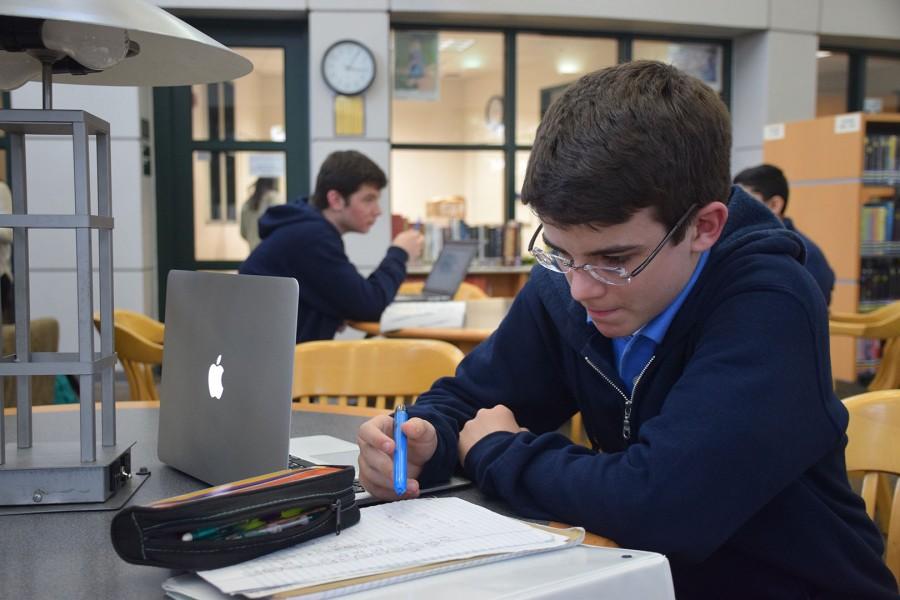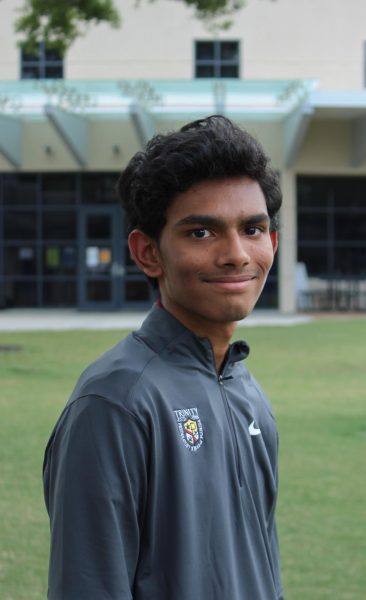Trinity’s new policy makes the term “cell phone” literal, with phones locked up in metal cases. And much like a traditional prison system, it is ineffective, inequitable and unsafe.
The policy — which forces all middle schoolers and freshmen to turn in their phones to their advisers for the school day — was enacted to “enhance student well-being and bolster learning,” according to the school’s announcement from July. However, it fails to accomplish either.
Our student handbook acknowledges that phones provide great utility in the classroom: “All electronic devices must be turned off during class unless the teacher has specifically authorized the use of the device during that particular class for educational purposes.”
The new policy inhibits students below 10th grade from completing tasks as basic as submitting classwork or recording media for projects. Nowhere is this more glaring than in our own newsroom: freshman staffers have to navigate a tedious new process to simply record an interview. Outside of class, QR codes, often used for club signups and incorporated into assembly, now exclude one-fourth of our upper school. That doesn’t bolster students’ learning; it diminishes it.
Recent changes to the dress code and attendance policies have been couched as necessary for students to build self-discipline. But with phones completely out of the picture for younger students, they no longer have a chance to do so.
“I don’t know if students, not just Trinity Prep students, students in general, are strong enough to self-regulate against what is one of the most lucrative industries in the world,” Assistant Head of Upper School Sebastiaan Blickman said. “So I’m not sure that practicing that attempt to beat [that industry] and failing repeatedly actually allows the student to develop that discipline.”
Students should not be denied that opportunity. Wholly eliminating phones from large swaths of the student body because of a few downsides neglects the benefits of learning to use them in moderation.
“We had a negative way of using our phones at school,” Freshman Class President Max Menard said. “So, because of that, we can’t improve ourselves and learn from our mistakes, and they just take it away. We don’t learn anything, and we’ll just go back to the same thing next year.”
Furthermore, much of what the policy aims to guard against, including video games and social media, can easily be accessed on laptops. Even texting can be accomplished without a phone — with the right technology.
MacBooks allow users to chat through iMessage even if their phone is turned off. Therefore, students who use Apple can circumvent the policy while maintaining a facade of compliance. This not only renders the current system futile but also creates an equity concern: Android and PC users can’t skirt the policy in this manner. What could have been a great campaign for healthy cell phone use has manifested as a half-baked advertisement for Apple.
“These are inequity issues that I think, as an administrative team, we [have] to wrestle with and [that] only get exposed when we actually put this into [effect],” Blickman said. “Now that we know it’s an issue, now we have to solve it.”
Students without Macs are now cut off from their parents, causing confusion with processes like after-school pickup — especially at this time of year, when severe weather holds are a regular occurrence. Trinity’s solution, per the policy’s announcement, is that “Parents can relay messages through the division offices, and students can connect with parents via the office phone.” But in serious situations, such as a medical emergency or threat on campus, that middleman wastes precious seconds.
During the tragic shooting at Apalachee High School in Georgia on Sept. 4, sophomore Abby Turner kept in touch with her mother over text. Her father soon rushed to the campus. If not for her phone, Turner would’ve spent what might have been her final moments in complete isolation from her family.
“I wanted to [text her] in case I couldn’t do it later,” Turner said in an interview with The Washington Post. “It was my first instinct.”
Given these concerns, Trinity should expand the system currently employed by 10th-12th grade, where students retain their phones while complying with teachers’ policies. More severe measures can be used as punishments on a case-by-case basis. Phones are valuable tools both educationally and socially, and at a college preparatory school, students must be prepared to work with such an integral part of society, not shielded from it.
“We can take phones away from kids during the school day, but when they end up going out to the real world … that’s something that they’re going to have,” Student Body President Connor Nanus said. “So if we’re trying to replicate a preparatory environment, I think limiting access to those things isn’t always the best option.”
Despite its flaws, Trinity’s new policy stems from an honorable goal. Unexpected challenges are bound to occur with any monumental change to life on campus.
“My biggest fear is that kids see teachers or admin or whoever as boogeymen that are out to get them,” Blickman said. “I want them to see that any decision we make is always guided by what’s best for the student. And it might be best for the student tomorrow, or it might be best for the student 10, 15, 20 years from now. We are trying to serve you all.”
For better or worse, phones are a part of life. It is time for us to stop locking them up and instead deal with them in a way that is practical, fair and safe for all.
The lead editorial expresses the opinion of the Trinity Voice editorial staff. Please send comments to [email protected].










